|
Low
Level Laser Systems
About
LLLT
A Brief Background of Low Level Laser Therapy
The
history of photomedicine stretches back thousands of years but
it is in the 20th Century that the scientific application of particular
wavelengths of light began. Albert Einstein first proposed the
theory of laser radiation. However, It was many decades before
the first working laser was fired and Dr. Theodore Maiman published
the first account of laser radiation in 1960. From a revolution
in the use of laser for surgical applications, benefits began
to emerge in the use of lasers for their therapeutic effects when
applied at low power intensity.
Dr
Endre Mester, a Professor of Surgery at Semmelweiss Hospital,
Budapest is often referred to as the grandfather of Low Level
Laser Therapy. He discovered that irradiation of tissue with low
dose levels using a ruby laser (emitting red light) resulted in
an increased rate of healing and his subsequent work provided
the initial volume of evidence for the efficacy of laser in healing
and wound care. The new science of Low Level Laser therapy (LLLT),
also known as Low Intensity Laser Therapy (LILT), was born.
Research
has clearly demonstrated effects at cellular level, in animals
and from clinical experience, but work continues into understanding
exactly how laser therapy works. The key research questions today
are not whether low level lasers have positive effects, but how
the precise and multiple biological mechanisms combine to create
the physiological effects and how best to achieve the particular
effects sought in each of the wide range of relevant applications.
In
the meantime LLLT is now widely used by healthcare professionals
across the world who appreciate not only its effectiveness but
its added advantages of being drug-free, pain-free, non-invasive
and without unpleasant side effects. It is often less expensive
than alternative treatments and has fewer contraindications than
popular forms of electrotherapy, such as ultrasound.
How
Laser Therapy Works
Low Level Laser Therapy aims to biostimulate. Because
of its low power nature, the effects are biochemical and not thermal
and cannot cause heating and thereby damage to living tissue.
Three distinct photobiological effects are known to occur when
using Low Level Laser Therapy:
1. Healing growth factor response
through:
Increased
ATP and protein synthesis
Improved cell proliferation
Change in cell membrane permeability to calcium up-take
2. Pain Relief through:
Increased
endorphin release
Increased serotonin
Suppression of nociceptor action
3. Immune system support through:
Increasing
levels of lymphocyte activity
Photomodulation of blood
Low level laser therapy optimises the speed of repair in acute
injuries but will also stimulate the body's repair processes
in cases of non-healing or chronic conditions.
In
addition, low level laser is used as an alternative medium in
the practice of acupuncture:
Laser
Acupuncture provides:
An
effective general needle-free alternative
Distinct energising characteristics
A complementary medium in the suite alongside needles and moxibustion.
Usage
Parameters
Four
important parameters need to be considered and set for clinicians
to achieve the best possible therapeutic effects when using low
level laser.
- Selection
of the correct beneficial Wavelength
- The
use of the correct Power levels at appropriate density
- The
Time of application to ensure the necessary amount of Energy
- The
appropriate Pulsing frequency
- Wavelength
Wavelength
is measured in nanometers.
It
is set in the probe and cannot be changed.
Omega’s
lasers are produced with wavelengths under 1000nm utilising red
light (600nm to 780nm) and Infrared (over 780nm):
Red
Light (Visible)
Readily
absorbed by the mitochondria and therefore potentially stimulatory
Excellent source of stimulation of a range of growth factors
Red Light does not penetrate very effectively below the skin surface
and into the tissue below
Red light is optimal for wound healing or superficial conditions
but is not the most effective way to treat deeper injury.
Infrared (Invisible)
Absorbed
through the cell walls (acting differently between cells) and
therefore cell response is more wavelength specific in the infrared
range, responding differently to different wavelengths
More penetrative through the tissue, especially the 800nm to 900nm
range, therefore this range is selected for treatment through
intact skin and pain relief.
Synergistic effects are achievable through combining selected
wavelengths in both the infrared and red light ranges - see multi-wavelength
cluster probes.
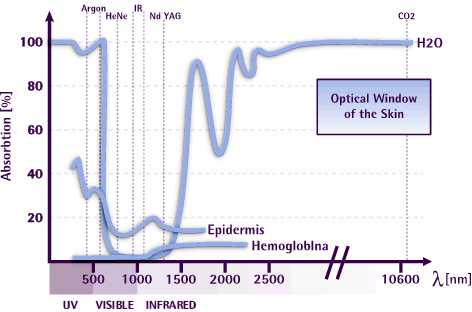
Energy
Density (Joules/cm2)
To
create a response in the growth factor cells or to provide pain
relief it is necessary to make sure that we are delivering sufficient
energy at appropriate density.
The
simple formula for the calculation of the required energy which
we as clinicians are providing in each treatment is based on the
relationship of Energy (measured in Joules) = Power x Time.
Power
(in watts or milliwatts) is the strength of the beam and is set
in the probe at the factory by Omega. Clinicians need to know
the power of the probe they are choosing to use and also have
the probes regularly checked to ensure that they are running to
full power. With Omega's equipment this check can be quite simply
carried out using the special measuring device integral to the
control unit.
Because
differing effects have been observed according to the density
at which the power is delivered, treatment dosage is measured
in Energy Density or Joules per centimetre squared (J/cm2), which
takes this power density into account and also allows comparison
of dosage across manufacturers' systems. Energy Density calculations
are automatically made by the control units with the user simply
selecting the probe and setting the time. Omega provides guidance
on the probe choice and dosage for the most common procedures
with each system purchased.
Pulsing
Rate
Pulsing
rate equals the number of times per second light is emitted. Research
has indicated that there are effects specific to pulsing rate.
Omega Laser control units allow variation of pulsing rate from
a selected set of appropriate options. Concise details of optimal
pulsing frequencies are supplied with all Omega Laser Systems
equipment.
For
up-date information and dose charts, existing Omega Laser Systems
customers can contact us at
steven@lighttherapyuk.com
Parameters for Laser Acupuncture
When
low level laser is used as an acupuncture medium, although certain
wavelengths, energy and pulsing rates are optimal, the selection
is led by the acupuncture system requirements rather than the
direct cellular response requirements. Best benefit of laser acupuncture
will therefore be achieved by a qualified acupuncturist. (Specialised
Laser Acupuncture training days for acupuncturists are offered
by Omega from time to time - see our Training programme for the
next one). 'Trigger' point stimulation, however, is increasingly
used by health care professionals in physical therapy disciplines
and is easily achieved with low level laser, integrating well
with direct laser therapy and manipulation.
Stand
alone laser acupuncture applications such as smoking cessation
require specific additional training, especially if to be undertaken
by a non-acupuncturist.

Specific
Clinical Applications
PODIATRY
& CHIROPODY leg
ulcers; verrucae; Achilles Tendonitus; Plantar Faciitis
PHYSIOTHERAPY
& OSTEOPATHY Tendonitus
; Epicondilitis ; Carpal Tunnel Syndrome
DENTISTRY
AND MAXILOFACIAL TREATMENT
Apthous Ulcers ; Trigeminal Neuralgia
; Hypersentive Dentine ; Orthodontics ; Periodontics and TMJ
DERMATOLOGY
& COSMETICS
Cold Sores (Herpes Simplex) ; Acne
and Post Dermabrasion
GENERAL
PRACTICE
Shingles & Post Herpetic Neuralgia
; Ulcerated Wounds ; Rhinitis & Sinusitis ; Arthritic Pain
Relief
ACUNPUNTURE
Smoking Cessation ; Drug and Alcohol
Withdrawl
VETERINARY
PRACTICE
wounds ; soft tissue injuries ;
tendons and ligaments ; muscle conditions ; fractures
Please
follow this link to the dedicated pages here on the website
.png)
Equipment
Overview
As
an LLLT specialist, and a quality-approved company, all of Omega
Laser Systems' products are designed to the highest standards
with the clinical needs of the practitioner in mind. All lasers
are Gallium Aluminium Arsenide Lasers, known as GaAlAs, and superluminous
LEDs are used in the multi-wavelength probes.
Omega's
equipment is used in over 70 countries, facilitated by an international
network of agents, and all of the latest products are USA FDA
cleared*, fully licensed for Canada and have all relevant European
certification.
Each Omega Laser system includes a choice of control unit plus
one or more of a range of interchangeable probes. Each probe is
produced to emit laser light at a specific wavelength, or set
of wavelengths where multiple diodes are used. The power, pulsing
frequency and programming can be varied with the easy-to-use control
unit. Approved safety goggles are a requirement and various specialist
accessories are also available.
Introductory
product training is provided with each control unit purchase and
additional training is available on tailored or public courses
- see Training information in the Resources
section .
*
As is the case for all FDA 3B Laser clearances,
products are cleared for specific uses - contact us for
details of products and applications covered.
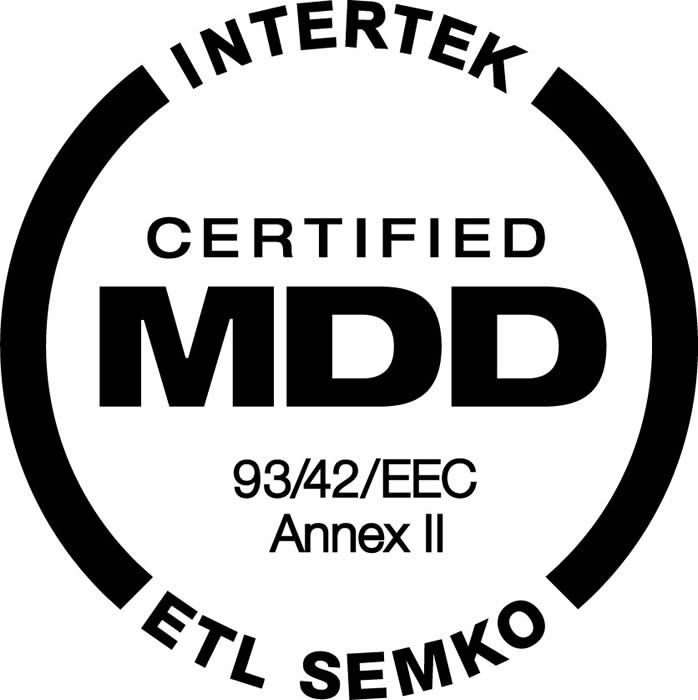 

Omega
Laser Control Units
An Omega Laser System requires one control unit,
plus one or more of a selection of probes and laser safety goggles.
The power, pulsing frequency and programming is set via the control
unit. All Omega manufactured equipment is certified to EC 13485
standards for medical use.
There
are a selection of three Control units and nine probes.
Omega Xp Clinic
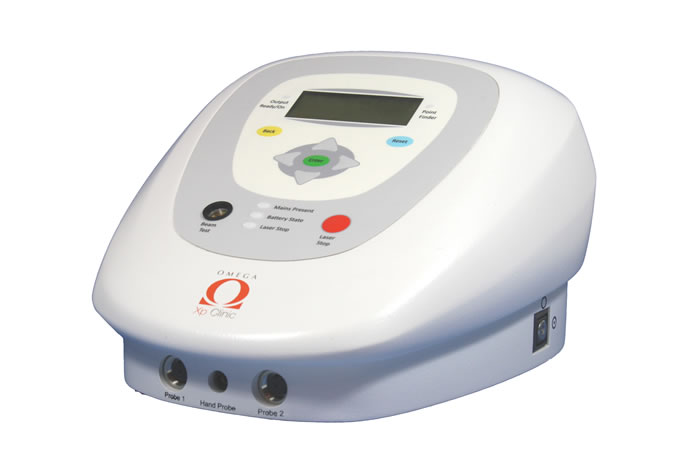
| Classification |
3B
Laser |
| Medium |
GaAIAs |
| Size |
H:
190 x D: 300 x W: 260mm |
| Weight |
3.54
kilos |
| Pulsing
Frequencies |
2.5Hz,
10 Hz, 20 Hz. 73 Hz, 146 Hz, 700 Hz, 1kHz, 5kHz, 10 kHz. |
| Battery
Life |
Cluster
Probe 4 hours; Single probe 10 hours. |
| Rechargeable |
Metal
Nickel Hydryde
4.1 Ah |
Omega’s
latest control unit is designed to sit comfortably in today’s
modern clinic. Extremely versatile, this unit accepts the complete
range of Omega’s interchangeable probes, allowing laser therapy
treatment of everything from superficial wound healing to deeper
muscular penetration and laser acupuncture point stimulation.
Whatever
the condition being treated, relevant repeatable treatment times
can be entered using the intuitive menu and the unit will automatically
calculate the resultant energy density or ‘dose’ to
be delivered.
The Xp Clinic offers a range of nine pulsing frequency options
and the ability to set three different pulsing repetition rates
within one treatment through the multi-pulse facility. This affords
the practitioner pulse variation capability without having to
reset.
This model has the most complete functionality in the Omega Laser
Systems portfolio and comes in a softly curved moulded casing
to complement the contemporary clinic aesthetic. Features include:
Straightforward
and helpful menu system
Clean lined contemporary design
Automatic probe recognition
Automatic calculation of surface energy density
Nine pulsing frequency options
Multi-pulse mode
Automatic repeat treatment time
Total treatment time record
Precise laser beam power output measurement
Visible warning when probe capable of emitting or in
use
Acupuncture point finder
Exceptional battery power
Wipe-clean membrane fascia
Unlike some
competitor systems, the Omega Xp Clinic has a built-in beam tester
which gives a reliable reading of the single probe outputs, meaning
that the user can always check that the equipment is working properly
– so important when invisible wavelengths are in use.
The
Xp Clinic includes an acupuncture point finder, which gives a
continuous electronic reading indicating when the acupuncture
point has been located. The micro-current conductivity measurement
which is used to identify such points can also locate trigger
points, making it an indispensable tool for physical therapists.
This feature utilises a purpose-designed hand probe and acupuncture
probe tip, both of which are included at no additional cost when
this control unit is purchased with an appropriate probe.
With
a high performance rechargeable battery built into the unit, it
is capable of extensive treatment times without the need for separate
battery packs, nearby power sockets or extension cables whilst
in treatment position.

Omega
Xp Mobile
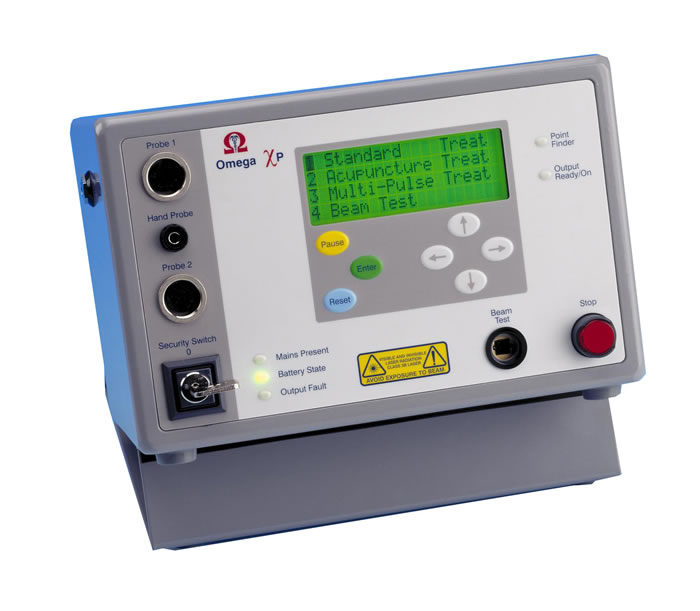
| Classification |
3B
Laser |
| Medium |
GaAIAs |
| Size |
H:
140 x D: 125x W: 220mm |
| Weight |
3.02
kilos |
| Pulsing
Frequencies |
2.5Hz,
10 Hz, 20 Hz. 73 Hz, 146 Hz, 700 Hz, 1kHz, 5kHz,
10 kHz. |
| Battery
Life |
Cluster
Probe 4 hours; Single probe 10 hours. |
| Rechargeable |
Metal
Nickel Hydryde
4.1 Ah |
This
portable Xp model has been designed for those on the move. With
functionality to match the Xp Clinic, the Xp Mobile is more traditionally
manufactured in steel for robustness. It is lighter, more compact
and is provided in a padded carry case.
Straightforward
and helpful menu system
Automatic probe recognition
Automatic calculation of surface energy density
Nine pulsing frequency options
Multi-pulse mode
Automatic repeat treatment time
Total treatment time record
Precise laser beam power output measurement
Visible warning when probe capable of emitting or in
use
Acupuncture point finder
High performance 4Ah Metal Nickel Hydryde battery built
in
Wipe-clean membrane fascia
Padded carry case and stand included
The
market leading built-in rechargeable battery in the Xp Mobile
is capable of powering the unit for up to 10 hours treatment time,
making this unit ideal when treatment is beyond the easy reach
of mains power supply. So whether it is domiciliary medical use
or treating animals in the field that is required, each is easily
achieved with the Xp Mobile.
Extremely
versatile, the Xp Mobile accepts the complete range of Omega’s
interchangeable probes, allowing treatment of everything from
superficial wound healing to deeper muscular penetration and acupuncture
point stimulation. The flexibility to enter repeatable treatment
times in 5 second increments is offered via an intuitive menu
system and the unit then automatically calculates the resultant
energy density ‘dose’ to be delivered.
The
Xp Mobile offers a range of nine pulsing frequency options and
the ability to set three different pulsing repetition rates within
one treatment through the multi-pulse facility. This affords the
practitioner pulse variation capability without having to reset.
This control unit has a built-in beam tester which gives an accurate
reading of the single probe outputs, meaning that the user can
always check that the equipment is working properly – so
important when invisible wavelengths are in use.
The
Xp Mobile also includes an acupuncture point finder, which gives
a continuous electronic reading indicating the proximity of acupuncture
points. The micro-current conductivity measurement which is used
to identify such points can also locate trigger points making
it an indispensable tool for physical therapists. This feature
utilises a purpose-designed hand probe and acupuncture probe tip,
both of which are included at no additional cost when this control
unit is purchased with an appropriate probe.
This
unit is designed so that it can be used in the carry case, and
placing the bag's strap over the shoulder or around the waist
can leave the clinician's hands free for treatment. When used
in the clinic the separate stand provided positions the unit with
complete stability and visibility on any flat surface.

Omega
Excel
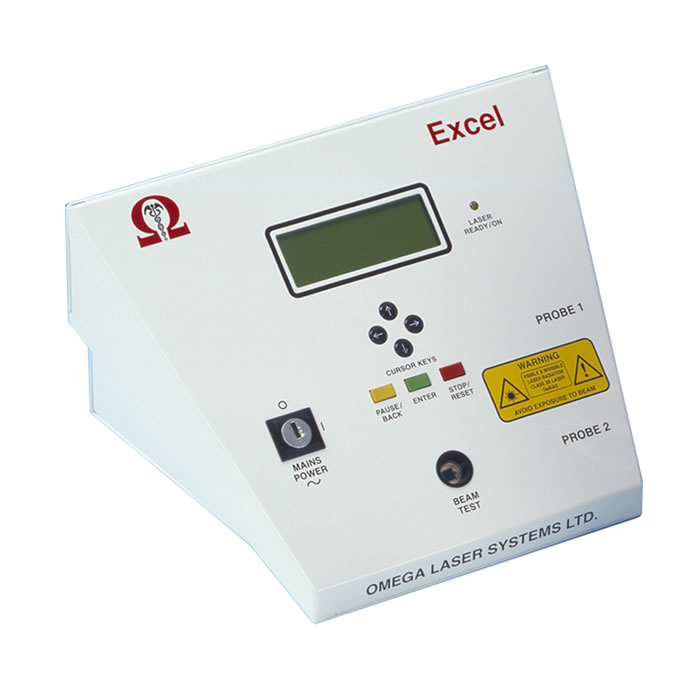
| Classification |
3B
Laser |
| Medium |
GaAIAs |
| Size |
H:
145 x D: 200 x W: 280mm |
| Weight |
1.58
kilos |
| Pulsing
Frequencies |
2.5Hz,
10 Hz, 20 Hz. 73 Hz, 146 Hz, 700 Hz, 1kHz, 5kHz,
10 kHz. |
Ease
of use for clinicians guided the development of the Excel Laser
Unit which features a combination of flexibility and automation
in a compact and functional design which has proved popular and
enduring.
The
Excel is Omega’s basic control unit, but it still boasts
the core functionality and flexibility of the other models including
all of the features listed below. It is designed primarily for
use in the department or clinic, but is light, at 2.4 kilos, and
comes with its own padded carry case, making it easily transported
by hand for multi-site use if so required.
Straightforward
and helpful menu system
Automatic probe recognition
Automatic calculation of surface energy density
Nine pulsing frequency options
Multi-pulse mode
Automatic repeat treatment time
Total treatment time record
Precise laser beam power output measurement
Visible warning when probe capable of emitting or in use
Offers core laser therapy functionality
Featuring
the versatility of all Omega’s control units, the Excel accepts
the complete range of interchangeable probes, with automatic probe
recognition giving on-screen probe wavelength and power description.
It enables treatment of everything from superficial wound healing
to deeper muscular penetration and acupuncture point stimulation.
The flexibility to enter repeatable treatment times in 5 second
increments is offered via an intuitive menu system and the unit
then automatically calculates the resultant energy density.
Again
the Excel offers a range of nine pulsing frequency options and
the ability to set three different pulsing repetition rates within
one treatment through the multi-pulse facility. This affords the
practitioner pulse variation capability without having to reset.
This
control unit also has the built-in beam tester which gives an
accurate reading of the single probe outputs, meaning that the
user can always check that the equipment is working properly.


Omega
Laser Probes
An Omega Laser system involves one control unit,
and one or more of a selection of probes plus laser safety goggles.
Each probe is produced to emit laser light at a specific wavelength.
Visible
red-light wavelengths have shown remarkable success in treating
wounds, pressure sores and non-healing ulcers, whether diabetic,
venous, neuropathic or infected. The red-light lasers are consequently
well-established in these fields, but more recently their effectiveness
in the treatment of acne, psoriasis, herpes simplex and other
dermatological conditions is becoming more widely understood and
used. They are also excellent for post-surgical applications,
to reduce scarring and healing time.
In addition to the single probes, all of which (apart from the
915nm “bone” probe) can be provided with your choice
of tips and attachments, we can now offer a red-light cluster
probe with 5 laser diodes facilitating rapid treatment of more
extensive superficial areas. This reduces clinical treatment time
and improves cost-effectiveness.
Our compact cluster probes all come with articulated heads for
ease of use and also have autoclavable bezels.
Here the clinical need can be served by either a single or a cluster
probe, the choice is then between prioritising initial outlay
or cost of treatment time, according to your circumstances.
660nm
by 50mW Single Probe
| Wavelength |
660
nm |
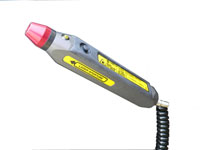 |
| Coherence |
Laser |
| Power |
50
mW |
| Power
Density |
0.40
W/cm2 |
| Classification |
3B
Laser |
5
x 660nm by 50mW Cluster Probe
| Wavelength |
660
nm |
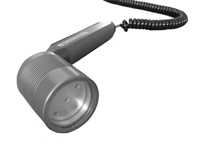 |
| Coherence |
Laser |
| Power |
5
x 50 mW |
| Power
Density |
0.40
W/cm2 |
| Classification |
3B
Laser |
| Invisible
Infra-Red Probes |
The
infra-red probes provide a penetrative, highly effective wavelength
for soft tissue and sports injuries, pain relief, acupuncture
point stimulation and smoking cessation.
These probes encourage fast resolution of musculoskeletal and
tendon injuries and substantial relief for arthritic, herpetic,
neuralgic and neuropathic pain. An infra-red is the probe of choice
for treatment of verrucae and general stimulation of immune system
response. Needle-free, non-invasive acupuncture and trigger point
stimulation via these probes is used for a range of conditions
including smoking cessation and tinnitus.
Cosmetic clinics also report success using these probes for reduction
of scarring, facial lines and wrinkles.
Allowing deeper penetration than the red-light probes, the 820nm
single infra-red probes are available in powers between 50 and
200mW. With the higher powers delivering more energy per point,
selection depends upon particular intended applications.
Each of the single probes accepts any of the range of autoclavable
tips including the specialist acupuncture tip.
Infra-red 5-diode cluster probes with articulated heads and autoclavable
bezels are also now available. These apply an 820nm wavelength
beam on each of 5 points at once, being ideal for situations where
treatment time is at a premium.
820nm by 200mW Single Probe
| Wavelength |
820
nm |
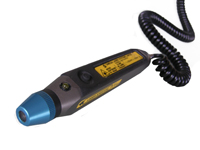 |
| Coherence |
Laser |
| Power |
200
mW |
| Power
Density |
1.60
W/cm2 |
| Classification |
3B
Laser |
820nm
by 100mW Single Probe
| Wavelength |
820
nm |
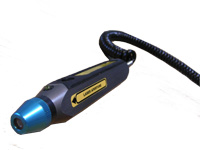 |
| Coherence |
Laser |
| Power |
100
mW |
| Power
Density |
0.80
W/cm2 |
| Classification |
3B
Laser |
820nm
by 50mW Single Probe
| Wavelength |
820
nm |
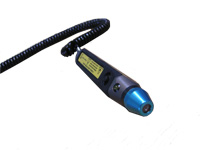 |
| Coherence |
Laser |
| Power |
5
mW |
| Power
Density |
0.40
W/cm2 |
| Classification |
3B
Laser |
915nm
Single Probe
| Wavelength |
915
nm |
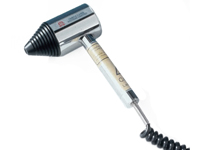 |
| Coherence |
Laser |
| Power |
100
mW average |
| Power
Density |
0.80
W/cm2 |
| Classification |
3B
Laser |
5
x 820nm by 100mW Cluster Probe
| Wavelength |
820
nm |
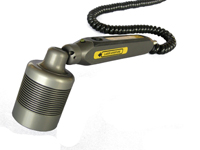 |
| Coherence |
Laser |
| Power |
5
x 100 mW |
| Power
Density |
0.80
W/cm2 |
| Classification |
3B
Laser |
5
x 820nm by 200mW Cluster Probe
| Wavelength |
820
nm |
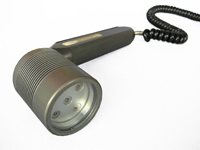 |
| Coherence |
Laser |
| Power |
5
x 200 mW |
| Power
Density |
1.60
W/cm2 |
| Classification |
3B
Laser |
Omega’s multi-wavelength cluster
probes incorporate the most effective wavelength combinations
from research results into a practical large irradiation area.
The use of selected multiple wavelengths has been found to create
a synergistic effect, resulting in a cellular response enhanced
by comparison with single wavelength use only. This makes the
multi-wavelength probe indispensable for treatment of many conditions
from sports injuries through wound healing to chronic pain.
Increasingly the most effective protocols for certain clinical
applications are found to involve the use of a multi-wavelength
probe in serial combination with a purely infra-red wavelength
probe.
As detailed below, we offer four multi-wavelength probes, with
combinations of between 20 to 60 diodes in each utilizing 5 or
6 different wavelengths. The smaller clusters are more suitable
for areas such as hands or feet, and the larger versions allow
improved rapid coverage. All have articulated heads for convenience
and clinician comfort in treatment.
The coherence of the light emitted by the diodes includes Superluminescent
LED and (for the 46 cluster) Laser as well. Each of these probes
is classed as 3B in Laser classification.
20 Diode Cluster
|
Wavelengths
|
660
nm. 810 nm, 850 nm, 880 nm, 940 nm
|
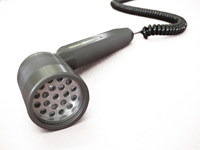 |
|
Power
Density
|
0.100
W/cm2
|
46
Diode Cluster
|
Wavelengths
|
660
nm. 820 nm, 870 nm, 880 nm, 940 nm, 950 nm
|
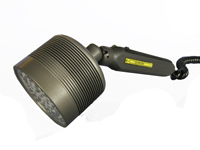 |
|
Power
Density
|
0.075
W/cm2
|
60
Diode Cluster
|
Wavelengths
|
660
nm. 810 nm, 850 nm, 880 nm, 940 nm
|
 |
|
Power
Density
|
0.100
W/cm2
|


Accessories
Laser Goggles
Laser
safety goggles are recommended when using laser equipment. The
goggles which Omega Laser systems supply are manufactured to standards
EN207 and EN208.
Specialist
Acupuncture Tip
For
acupuncture, we provide a narrow beam adaptor designed specifically
for the stimulation of acupuncture points. This also provides
the conductivity for the single probes when used with the acupuncture
point finder on the Xp base units and is included at no extra
cost when an Xp and single probe are purchased. This tip is also
the ideal size for treatment directly into the ear for tinnitus
and can be purchased separately or as a replacement if required.
Other
Specialist Probe Tips
For
maxiofacial, dental and certain wound-healing applications, we
offer a range of tips which enable the clinician to treat in the
mouth or into sinuses with ease and accuracy, ensuring that the
light is used directly onto the affected tissue. Used with the
red-light probes accuracy is heightened further through the additional
benefit of direct illumination and thus improved visibility of
the affected area. Please make contact with me if you have a particular
probe tip requirement.
steven@lighttherapyuk.com

Laser
Therapy Publications
Please
select the type of publication you are interested in:
Recommended books
Key journals
Research references

About
Omega Laser
I
trained with the team in 1995 and have worked with this talented
and committed team of people ever since. There standards as well
as experience in the field of low power laser is of an international
standing.
Omega
Laser Systems is the longest established UK low level laser manufacturer
and was involved in much of the founding research work in the
field. Omega’s equipment has been used by health care professionals
across the world for more than two decades.
They
are specialists in low level laser, actively involved in all aspects
of the design, production and sales of the products. This focus
ensures that we have a thorough understanding of the technical
aspects of laser therapy as well as allowing us to keep abreast
of clinical developments in low level laser application across
disciplines. Our knowledge therefore usefully complements, rather
than duplicates, that of the health care professionals who use
our equipment.
Guided by the same senior management team since 1993, Omega has
consistently promoted a people-focused approach, seeking to deliver
excellent customer service whether pre or post purchase. We believe
it’s key to ensure that a laser system fits the clinician’s
needs and that they can employ it effectively, so we advise on
appropriate tailored systems, train one-to-one with each direct
purchase and support new customers as they build confidence in
using the equipment. We also encourage customer feedback and ongoing
dialogue, whether on equipment, service or treatment protocols,
with many long-established customer relationships as a result.

Testimonials
Medical
Applications
"I
have been extremely impressed with the very thorough support
and aftersales care given by Omega - very reassuring when incorporating
a new electrotherapy modality."
Helen
Tompkins, McTimoney Therapist
MSc Dip ITEC DipI IHHT MMAA BCMA
"I have used Low Intensity Laser Therapy for 20 years and
believe it to be the most effective weapon in the physiotherapy
armoury"
Margaret
Parkinson MCSP
"I have been using the Omega Clinic Laser System since
2008. I had researched and tried out various other systems before
buying the Omega System. This one, by no means the cheapest,
offered, in my opinion, the best versatility of options for
clinical application.
I
use the 820nm with 5 heads, a single 820nm and a cluster. I
also use the visual trigger point finder.
It delivers stunning results for a variety of conditions i.e.
trigger point therapy for pain, disc problems, arthritis (especially
great for knees) and post op care for hip and knee surgery.
I
have great confidence in the Omega System and recommend it whole
heartedly as an adjunct to adjusting care in any office.The
patients love it when it helps them feel better. As well as
the clinical excellence offered by Omega, their after sales,
in my experience, is superb. Jessica and the team are first
class and will help with any questions quickly and efficiently.
Peter
Ellison, Chiropractor
"I have used a laser in my practice for over 10 years,
and The Institute for the Study and Treatment of Pain has been
using the Omega Laser since the clinic opened in 1996. We find
the laser very effective in treating pain in the musculoskeletal
system; especially when there is no evidence of injury or inflammation.
This type of pain is frequently caused by a malfunction in the
peripheral nervous system, which diminishes the trophic input
through the nerve. The laser can help by stimulating the painful
area and releasing contractures. This laser is in fact a useful
form of stimulation-induced analgesia.
We
also use the laser to prevent pain; for example laser applied
before acupuncture or dry needling can reduce the needle pain.
Taking the manufacturer's recommended precautions we have found
the laser to be entirely safe."
Dr.
C. Chan Gunn - Clinical Professor
"I have been using Omega Low Level Laser equipment for
over two years. During this period I have been impressed by
the result this therapy gives. I am now able to treat a whole
range of chronic and acute conditions that I would not previously
have been able to treat with any current modalities. In addition
to treating painful traumatic or functional problems, the results
in the field of wound healing are truly impressive. I would
never give up the LLLT equipment."
Laurence
Trister - Podiatrist
"It has been my experience that the use of laser therapy
alongside my own techniques adds a new dimension to my clinic,
has facilitated and enhanced the therapeutic effect of myofascia
release and has shown remarkable benefits in the treatment of
pain."
Dr
Tony Wahba, Specialist in Pain, Eastbourne UK
"I have been using Low Level Laser Therapy (LLLT) with
good effect for treating verrucae (warts), trigger point pain,
sports and soft tissue injuries, reloma durum with fibrous tissue
involvements and post nail surgery."
Pat Turnball - Podiatrist, Cheshire UK (recently emigrated to
Australia)
"I have found low level laser therapy to be effective for
the treatment of psoriasis when all traditional treatments have
failed."
Howard
Carr, Functional Medical Practitioner
“I introduced laser into my practice in 1989 and continue
to be amazed at the results.”
Beverley
Ashdown, Ashdown Clinic - A multi disciplinary practice
“As a PE teacher I was really concerned when a hospital
X-ray indicated that I had sustained ligament damage and a chipped
bone in my ankle. I started laser treatment on my injury within
24 hours of it happening, and noticed a discernible difference
within 2 days. When I returned to the Accident and Emergency
recall surgery 10 days later, the doctor was really impressed
at the recovery I had made. I played volley-ball at an International
level, and physical health is still crucial to my career. I
would say that the laser treatment reduced my expected healing
time at least by half and although I hope I never get a debilitating
injury ever again, if I do, I will be phoning the Ashdown Clinic”
Jean
McLeod, Glasgow, Ashdown Clinic patient
“After having months of treatment for various leg ulcers
from my doctors and nurses, they were not responding. I was
referred to Ashdown Clinic, where I received laser treatment.
This was successful, and the ulcers were completely healed.”
Mr
Storey, Hertfordshire, Ashdown Clinic patient
“As an active sportsman, I have appreciated the benefits
of early laser treatment to quicken the healing of sprains,
strains and other injuries I have suffered. It was so good to
feel the tingle on the skin and the warm glow spreading throughout
the site of the injury, bring within it the relief from pain
and the tremendous psychological uplift of knowing that the
rapid promotion of healing would enable me to return to my sports
as quickly as possible. I have not suffered any long term aches
and pains, and I am extremely grateful to the Ashdown Clinic
for introducing me to this treatment.”
Neil
Herrington, Hertfordshire, Ashdown Clinic patient
“My knee was giving me trouble for about a year, I was
contemplating surgery. Cortisone failed, laser worked.”
Dr
Pullon, Hertfordshire (Retired GP & Ashdown Clinic patient)
“From the healing point of view, excellent!”
Eileen
Adams, London, Ashdown Clinic patient
“I have been experiencing Achilles tendon problems, which
affected my running for over 10 years, and had received various
different treatments during this period; with limited success,
however after an intensive series of laser treatments the thickening
of the tendons had gone completely as have the "sore spots".
I have had no further recurrence of the problem and have been
able to train normally (well as much as bringing up a 4 year
old will allow)”
Glenn
Reader, Hertfordshire, Ashdown Clinic patient
Veterinary
Applications
"Laser has enhanced my practice by allowing
me to offer an aseptic, painless and non-invasive alternative
to conventional acupuncture needles for animal treatment - I
would not be without it."
Janet
Lloyd-Jones, MBAcC MBMLA
"...With the Diana monkey we used it right from the beginning
and the results were dramatic. The original wound was the traumatic
amputation of a thumb and part of the fat and soft tissue surrounding
the thumb. After the first manuka honey dressing change there
was necrosis and sloughing of tissue but after that we started
using the laser in conjunction with the manuka dressings and
the speed of healing was dramatic and the scar production minimal.
It enabled us to carry our relatively few dressing changes and
the monkey to gain good use of its hand with no tendon contraction.
The laser's been a fantastic help."
Ghislaine
Sayers, Head of Veterinary Services, Paignton Zoo UK
" I use my laser more than any other piece of electrotherapy
equipment. There are so many horses and treatments I could talk
about but they would take me a week! For example, a couple of
horses had each sustained very bad injuries to their hoof wall
and working with the farrier in our yard, who recognised that
the laser made all the difference to the hoof quality, we gave
2 to 3 laser treatments a week over an extended period of time.
This has made a real difference to both and for one in particular,
whose injury was so severe that he was used as an injury study
for vet students in the early days whilst at Newmarket Equine
Hospital, and we feel would have been euthanized as the foot
was cut in half. We are pleased that even though it has taken
so far 10 months his front foot is reforming, though somewhat
smaller than the other. There are other measures and treatments
being given to this horse to maintain health and balance but
there is no doubt the laser made a massive contribution to the
success of the foot reforming."
Angie
O'Brien, Shadwell Stud, Norfolk UK
"The Omega XP mobile unit has significantly enhanced the
service I can give to clients and the treatments I can offer.
The unit is perfect to use in the field. I have had very good
results with issues ranging from hoof abscesses, splint reduction,
ligament and tendon injury, to wound repair, in which case the
laser provides simply excellent results. Laser therapy is now
fully incorporated in to my work as a physical therapist, as
it is an excellent adjunct to chiropractic and physiotherapeutic
techniques for musculoskeletal problems. I have been extremely
impressed with the very thorough support and aftersales care
given by Omega - very reassuring when incorporating a new electrotherapy
modality."
Helen
Tompkins McTimoney Therapist
MSc Dip ITEC DipI IHHT MMAA BCMA
"I am really impressed at the level of improvement the
laser is having on a serious bowed and damaged tendon with one
of the horses."
John
Lennon, Racehorse Trainer, Co. Wicklow, Eire.
"At a horse show the horses of my daughter and one of my
students were given an overdose of steroids in the middle of
the night. They came out of their stalls crippled with hoof
pain the next morning. This could easily have been permanent
and usually is. We lasered both horses. By the next day they
were about 80% improved and by the end of the week they were
100% sound again. I know the normal veterinary protocol for
this condition and there is no way that without the laser either
horse would be sound. The normal treatment course would have
been too slow and the bone inside the hoof would have rotated.
My daughter will be forever grateful. She went on later to compete
on a national level with him, but more important than that the
laser saved her best. Thanks again."
Linda
Elkins, Breezeway Performance Horses
"I use my Omega Laser all the time - it works wonders when
it comes to wound-healing in particular."
Terry
Girling, BSc BVetMed MRCVS
"I just haven't stopped since I got my Omega Laser system
- bowed tendons just go down before your eyes."
Jayne
Flook, Belvoir Equine, Melton Mowbray, UK

|

![]()
![]()
![]()
![]()
![]()
![]()
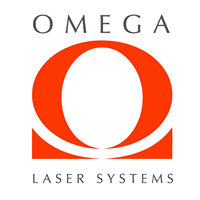
![]()
![]()
![]()
![]()
![]()
![]()
![]()
![]()


.png)

















